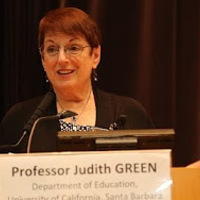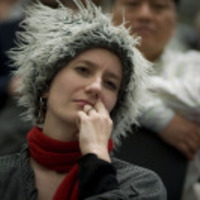Papers by Shampa Iftakhar
Journal of international women's studies, 2020
This journal and its contents may be used for research, teaching and private study purposes. Any ... more This journal and its contents may be used for research, teaching and private study purposes. Any substantial or systematic reproduction, redistribution , reselling , loan or sub-licensing, systematic supply or distribution in any form to anyone is expressly forbidden. ©2020 Journal of International Women's Studies.

In the Light of What We Know is a big, ambitious, debut novel from Bangladeshi author Zia Haider ... more In the Light of What We Know is a big, ambitious, debut novel from Bangladeshi author Zia Haider Rahman. Rahman explores the story of two immigrants from very different class backgrounds. In the novel, we find an unnamed narrator. He is a banker from a privileged background .His grandfather was Pakistani ambassador to the US, and his parents are Oxford academics. Zafar, on the other hand, was born in Sylhet, a "corner of a corner"[1] of northeastern Bangladesh. Their stories unfold from their conversation, and from Zafar's notebooks. The story gracefully and deftly explores the different issues such as entire nature of life, existence, love, belonging, math, free-will, politics, identity, quantum physics and so on. It also depicts a strong sense of homelessness of an immigrant who never gets back home. The story covers the most significant events of different countries i.e. Liberation War of Bangladesh, issues of 9/11, condition of Afghanistan, etc. In a strict sense, Rahman's In the Light of What We Know is not a political one. Even he addresses and explores these political issues to put forward very critical issues of politics from 1971 to 2011. The narrator's friend never gets a home in abroad. England never welcomes him. He is exiled from root. He feels anger within himself for this exile. This paper aims to focus on particularly of these two issues politics and exile that we find in the novel, In The Light of What We know.
In Bangladesh, English is compulsory from class one. Teaching English in the government primary s... more In Bangladesh, English is compulsory from class one. Teaching English in the government primary schools in the rural areas through Communicative Language Teaching (CLT) is a great challenge. The problems are manifold. The schools lack effective English teachers having little idea of CLT and language awareness. They suffer from low motivation for many reasons. This study first presents an overview of primary education focusing on the state of English teaching in government primary schools along with teachers’ qualification and training. Then the study investigates the definition and principles of CLT and language awareness as the teachers perceive and practice. The present study with 200 participants who are working at different primary schools in rural areas proves that lack of in-depth knowledge and training in CLT make it difficult to ensure quality English teaching.

International Journal of Languages, Literature and Linguistics, 2016
In the Light of What We Know is a big, ambitious, debut novel from Bangladeshi author Zia Haider ... more In the Light of What We Know is a big, ambitious, debut novel from Bangladeshi author Zia Haider Rahman. Rahman explores the story of two immigrants from very different class backgrounds. In the novel, we find an unnamed narrator. He is a banker from a privileged background .His grandfather was Pakistani ambassador to the US, and his parents are Oxford academics. Zafar, on the other hand, was born in Sylhet, a "corner of a corner"[1] of northeastern Bangladesh. Their stories unfold from their conversation, and from Zafar's notebooks. The story gracefully and deftly explores the different issues such as entire nature of life, existence, love, belonging, math, free-will, politics, identity, quantum physics and so on. It also depicts a strong sense of homelessness of an immigrant who never gets back home. The story covers the most significant events of different countries i.e. Liberation War of Bangladesh, issues of 9/11, condition of Afghanistan, etc. In a strict sense, Rahman's In the Light of What We Know is not a political one. Even he addresses and explores these political issues to put forward very critical issues of politics from 1971 to 2011. The narrator's friend never gets a home in abroad. England never welcomes him. He is exiled from root. He feels anger within himself for this exile. This paper aims to focus on particularly of these two issues politics and exile that we find in the novel, In The Light of What We know.

International Journal of Management and Applied Science., 2015
Over the decades, Myanmar has adopted iron-fisted policy to demolish the ethnic minorities from i... more Over the decades, Myanmar has adopted iron-fisted policy to demolish the ethnic minorities from its land. Though Myanamar is said to have the richest ethnic diversity in Asia, civilians living in the ethnic areas are deprived of the least facilities, in addition, most of them minority groups have been undergoing forced displacement, torture, sexual violence and at times death. Last year, over 6 lacsRohingyas people took shelter in neighboring country Bangladesh when Myanmar launched "operation clearance". The UN Secretary termed this as "Structural Violence" against the most persecuted ethnic group in the world. This paper aims to focus on structural violence againstdifferent ethnic minorities in general. More specifically attention will be given to recent violence against Rohingyas Muslims. To explore the nature of structural violence against ethnic minorities in Myanmar, this paper primarily discusses the theory of structural violence. Then it will attempt to shed light on the very recent issue of ethnic cleansing launched against Rohingya people which ultimately echoed the violence of human rights in every respect.
Journal of International Women's Studies, 2020
This journal and its contents may be used for research, teaching and private study purposes. Any ... more This journal and its contents may be used for research, teaching and private study purposes. Any substantial or systematic reproduction, redistribution , reselling , loan or sub-licensing, systematic supply or distribution in any form to anyone is expressly forbidden. ©2020 Journal of International Women's Studies.
International Journal of Languages, Literature and Linguistics, 2015
Based on a real-life experience of the World War I, Humphrey Cobb wrote Paths of Glory in 1935.Th... more Based on a real-life experience of the World War I, Humphrey Cobb wrote Paths of Glory in 1935.This novel has a strong voice against inhumanity and injustice. Stanley Kubrick took the same plot for the movie Paths of Glory. Both the novel and the film are the anti-war statements that assert the crime against humanity when justice is denied for power and greed. Some countries of this modern world have experienced injustice and crime against humanity. Now we see blood shedding, brutal planned murder and, injustice in Gaza. This paper intends to analyze how Paths of Glory, both novel and film, successfully forecast greedy human nature that is responsible for the crime against humanity and injustice which has been repeated over a period of time and how two are allegorical representation of our present world.
Stamford Journal of English, 2013











Uploads
Papers by Shampa Iftakhar